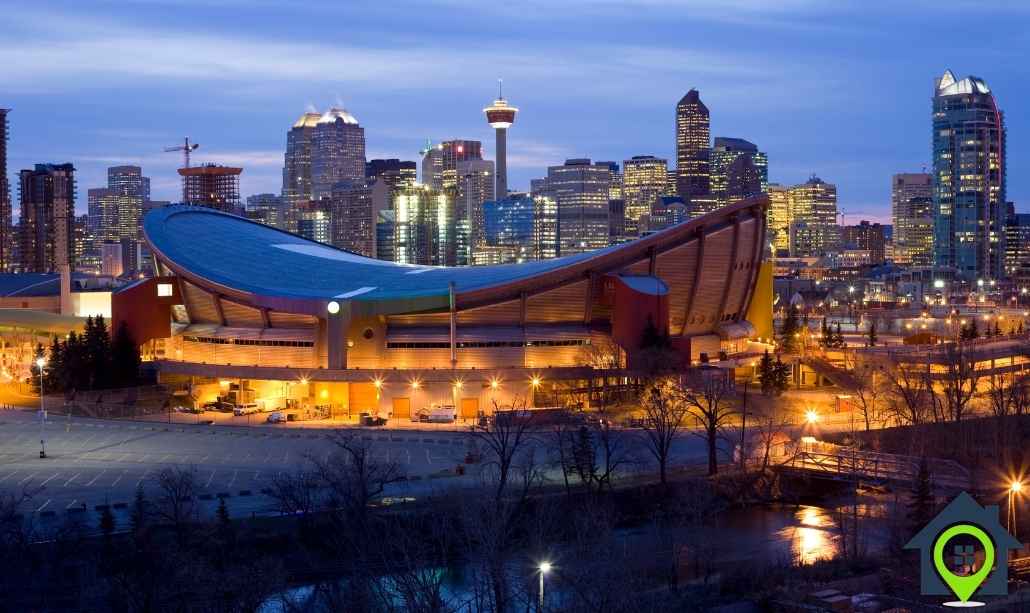Calgary is known for its perfect environment and high standard of living, making it a nice place to live. It offers all the benefits of a growing city with beautiful beauty, such as the Rocky Mountains. Calgary usually boasts one of the highest average earnings in Canada. It has a healthy job market, especially in industries like energy, technology, and finance. Although the city has long winters. It also enjoys plenty of bright days and the special “Chinook” winds that occasionally bring pleasant weather.
History
Calgary’s history is rooted in its Indigenous heritage, with the area being home to the Blackfoot, Tsuu T’ina, and Nakoda Nations for thousands of years. European settlers arrived in the late 1800s, with the establishment of Fort Calgary by the North-West Mounted Police in 1875 to maintain peace and protect the fur trade. The Canadian Pacific Railway’s arrival in 1883 spurred rapid growth, transforming Calgary from a small frontier outpost into a bustling transportation and agricultural hub.
Calgary’s first major economic boom came with the discovery of oil at Turner Valley in 1914, setting the stage for the city’s future as an energy capital. The oil industry surged again in the mid-20th century, attracting investment and people from across Canada and beyond. The city also gained international recognition by hosting the 1988 Winter Olympics, cementing its reputation as a world-class city. Today, Calgary is a vibrant, diverse metropolis, balancing its Western roots with modern urban development and a strong cultural scene.
Culture In Calgary
The community and culture of Calgary, which provide a wide variety of entertainment and cultural events, are among its greatest attractions. There’s a lot to discover in Calgary, whether you’re thinking about relocating there for its thriving art or social scene. The city’s allure is increased by Calgary’s abundance of cultural events, which range from music festivals to art galleries and theatres.

Daily Expenses
In addition to housing, Calgary offers lower daily costs than other Canadian cities. For instance, groceries in Calgary typically cost less, which can drastically cut down on your monthly spending. A low-income monthly transit pass is also available in Calgary; the cost is dependent on the rider’s income. Because of this, public transit is an affordable way to go about the city.
Overall, life in Calgary is still reasonably priced, even with the growing expenses of utilities and transportation. According to estimates, a person may live comfortably in Calgary on an average monthly expenditure of roughly $3,000. Residents in Calgary can enjoy a higher level of living than those in many other Canadian cities thanks to its affordability and high average salaries.
Job Opportunities
If you’re thinking about moving for work, Calgary’s economy is robust and varied. Numerous economic prospects are available in the city, particularly in the fields of technology, healthcare, financial services, and oil and gas. Professionals wishing to migrate can find plenty of options in Calgary’s steadily expanding work sector. In addition, Calgary’s cost of living is still inexpensive when compared to other Canadian cities like Toronto and Vancouver, which enables citizens to live better lives.
Education
In Alberta, the provincial government provides the majority of the funding for education. Preschool, which is typically not required, is the first formal education in Alberta. Kindergarten through Grade 12 are then partially required. The Ministry of Education, often known as Alberta Education, is in charge of this and has separated the province into 379 school authorities. Alberta Advanced Education oversees the province’s higher education system.
The educational system in Alberta is highly developed and regarded as one of the best in both Canada and the globe. In the past, it has also done well on graduation exams and worldwide rating assessments.
Healthcare System
The Foothills Medical Centre, the Peter Lougheed Centre, the Rockyview General Hospital, the South Health Campus, and a children’s acute care hospital, Alberta Children’s Hospital, are all run by Alberta Health Services, the province’s only provincial health authority, which provides medical care on behalf of the Ministry of Health.
The shock trauma air rescue society is in charge of the medical helicopters. Other medical facilities in Calgary include the Sheldon M. The Foothills Medical Centre is home to the University of Calgary Medical Clinic, which collaborates with the Calgary Health Region. Together, the four biggest hospitals in Calgary employ approximately 11,500 people and have more than 2,164 beds.
Crime Rate
Calgary’s crime rates are generally comparable to other large Canadian cities, though they vary by neighborhood and type of crime. The city sees relatively low rates of violent crime, such as homicides, especially when compared to similarly sized urban centers globally. However, property crimes, such as theft and break-ins, tend to be more common, particularly in certain areas. Calgary’s economy can influence crime rates; during economic downturns, property crime and drug-related incidents may increase, as seen in recent years. The Calgary Police Service actively engages with the community to address these issues, focusing on preventive programs and partnerships with local organizations. Overall, Calgary is regarded as a safe city by international standards, and most residents report feeling secure.
Pros And Cons
Pros
- Low Sales Tax and Low Cost of Living
- Fantastic Workplace
- Magnificent Landscapes
- Outdoor Recreation
- Parks That Are Accessible
- A Friendly and Diverse Neighborhood
- A robust economy
- A thriving cultural landscape
- Excellent Safety of Public Transit
Cons
- Short summers
- harsh winters
- Chinook Winds
- The volatility of the economy
- Expensive living expenses
- Traffic jams
- Overcrowding in certain schools
FAQS
Is It Worth It To Move To Calgary?
In terms of healthcare, culture, environment, and stability, Calgary is one of Canada’s best cities.
Is It Expensive To Live In Calgary?
Residents of Calgary enjoy higher wages in addition to a more affordable cost of living. Statistics Canada data from 2021 shows that the average annual salary in Calgary is $61,400.00, while in Vancouver it is $55,300.00. Accordingly, Calgary’s average pay is 11.3% higher than Vancouver’s.
What Is Living Income In Calgary?
Calgary’s new hourly living wage is $23.70. Despite the government enacting certain affordable measures, it is likely not surprising that it increased during the past year.
Which Is Better To Live, Edmonton Or Calgary?
Edmonton experiences somewhat warmer winters than Calgary, which experiences colder winters but more sunshine. Outdoor Activities: Edmonton boasts the largest urban park system in North America, while Calgary is close to the Rockies. Nightlife: Both cities offer a thriving nightlife with distinctive regional experiences.




Join The Discussion